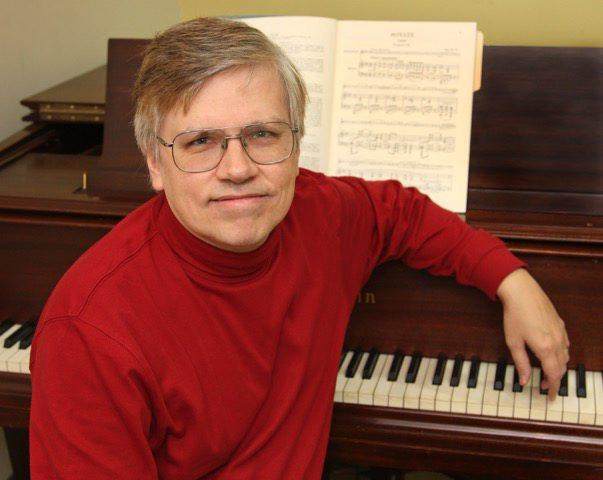We asked Vytas Baksys (piano, ’72–’78) – who may share the record for the number of consecutive years as a camper – to reminisce about his time at Kinhaven.
He is perhaps best remembered for his humorous musical contributions to the Kinhaven community, including his reenactments of piano routines by Chico Marx. Vytas also performed an infamous piano concerto for strings, oboes, and horns. Subtitled “Brr-oke,” it included allusions to Beethoven’s #3 and #7, the Beethoven Clarinet Trio op. 11, Dance of the Cuckoo (Laurel & Hardy), Schumann’s Happy Farmer, Whistle While You Work (Frank Churchill), the Fauré Requiem, Mozart #40, Dvorak #8, Mozart G minor…and a few others.
“That was my earliest attempt to incorporate pre-existing materials into a single matrix,” he says. “In subsequent summers I subjected the crowd to a movement of the ‘Symphoney in F+’ and a quodlibet called the ‘Underture to the Dentist of Milan.’”
Vytas says he returned to Kinhaven six years in a row because of “the absence of distracting metropolitan conveniences and the mystique of 120+ people becoming a ‘family’ in the space of seven weeks, discovering and sharing common ground beyond music-making.”
“I was also lucky that about 50 percent of the faculty and staff remained the same each year,” mentioning Joe Contino (clarinet), Bob and Kay Moore (bassoon and piano), Mary Jane Metcalf and Marcia Edson (violin), Dennis Behm (horn), Dan Maki (flute), and Grace Brigham (art).
Vytas said the scholarship support he received through the Annual Fund was also critically important.
Vytas began his 29th season with the Boston Symphony this year, and completed his 20th season with the Rivers School Conservatory and his 19th with the Concord Chamber Music Society. He maintains a hectic schedule averaging 150 performances of 100 programs a year.
On what makes Kinhaven unique, Vytas says, “I’m sure there are other music camps set in the wilderness, but what seems unique to me is the non-competitive atmosphere the Dushkins created, which encouraged interactions between students whose ages and skill levels greatly differed.”

